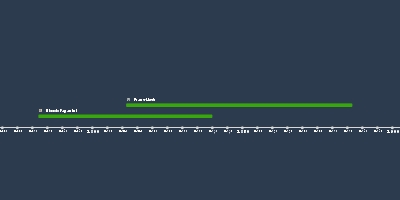Johannes Brahms (1 feb 1833 anni – 1 ottob 1897 anni)
Descrizione:
a German composer, pianist, and conductor of the Romantic period.Brahms
A. New Paths: Johannes Brahms
1. Brahms grew up under the early Romantics, but was the first composer to grow up
with our modern ideas about classical music.
2. At a young age, Brahms met the Schumanns.
3. Schumann wrote his last article for Neue Zeitschrift about the young Brahms,
describing him as the one who would save music and the successor to Beethoven.
4. Even though Brahms had not composed a symphony, Schumann predicted that he
would be the one to take up the legacy of Beethoven.
Symphonic Attempts
1. Concerned about his place in history and living up to Schumann’s expectations,
Brahms was hesitant to write a symphony.
2. When Schumann was committed to an asylum, Brahms took over as the head of the
Schumann household and as the poster child for the Mendelssohn/Schumann heritage in the War of the Romantics.
3. Brahms began a symphony in D minor, but through various stages it became the first
movement to his Piano Concerto in D minor.
4. Brahms knew that, considering Liszt’s new challenges to the idea of a symphony (the
symphonic poem), post-Beethoven symphonies would have to look different.
Brahms’s Chamber Music and “Developing Variation”
1. Before establishing himself as a symphonist, Brahms worked on chamber music.
2. Like the symphony, chamber music had fallen by the wayside, as the New German School composers were not interested in it.
3. The nineteenth century saw an increasing interest in middle-class musical connoisseurs who looked beyond fireworks to substance.
Choral Fame
1. Brahms’s first fame came as a composer of choral music.
2. He directed one of the main choral societies in Vienna, the Singakademie, and he
worked on older repertory, enlisting the help of musical scholars to publish the scores.
3. Brahms’s A German Requiem is not a liturgical work.
Inventing Tradition
1. Brahms’s initial success with pure orchestral music was the set of Variations on a
Theme by Haydn of 1873.
2. With his German Requiem and Haydn Variations, Brahms’s fame grew.
3. By the time he was forty, Brahms was highly acclaimed.
a. He offered a successful alternative to the New German School.
b. Wagner, old enough to be his father, saw him as a threat.
Aggiunto al nastro di tempo:
Data:
1 feb 1833 anni
1 ottob 1897 anni
~ 64 years
